Why does it seem that when pets get sick or injured, it’s always outside of normal business hours? That means a trip to the emergency vets. And visiting these facilities is very different than scheduling an appointment with your pet’s regular doctor. With these tips you’ll be prepared when the situation arises!
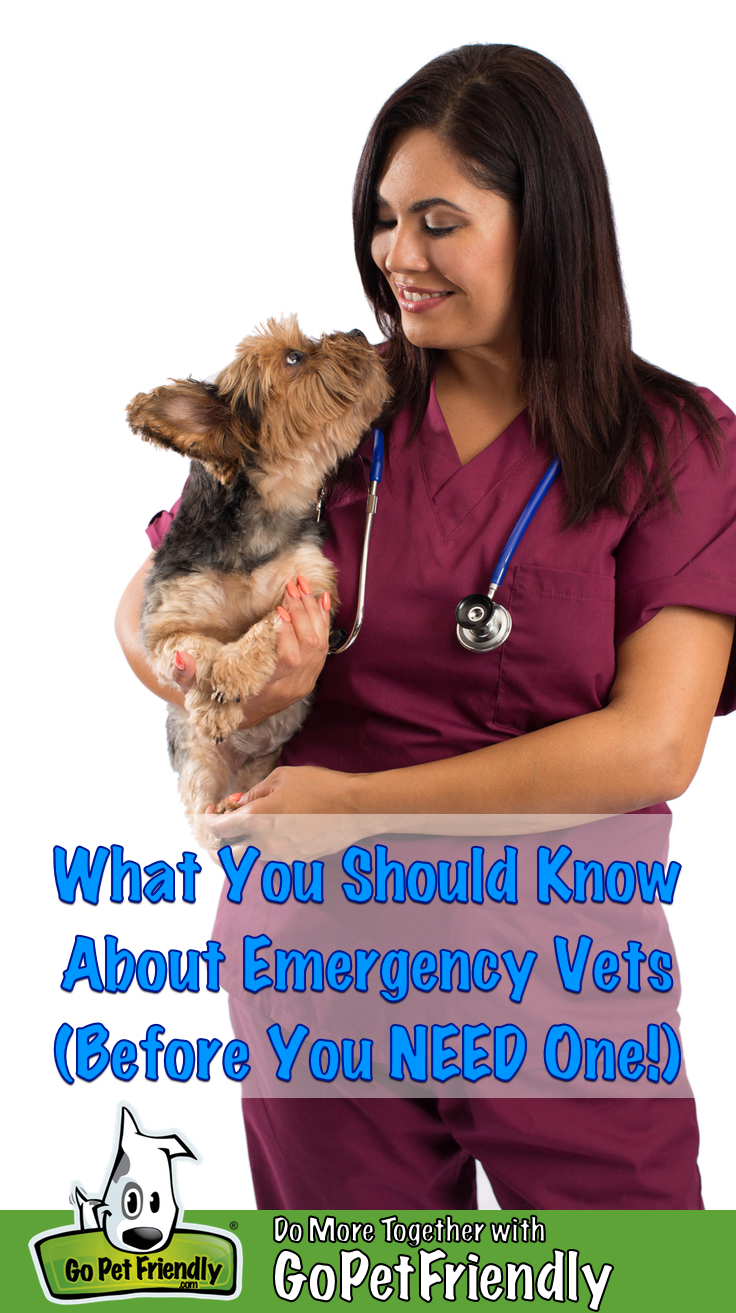
Oh no … BLOOD! As Honey and I were walking to the car, I noticed her paw was leaving marks on the pavement. And we were traveling — hundreds of miles away from her regular vet!
Though Honey’s injury was clearly not life-threatening, it still needed care sooner rather than later. And that meant a trip to the emergency vets.
While seeking care for Honey, I learned a lot about receiving emergency care for my dog. Hopefully you’ll never need to know any of this. But if your pet gets ill or injured while you’re traveling, these tips will help!

What Is An Emergency?
Before locating the local emergency vets, you will need to decide the seriousness of your pet’s condition. When your pet gets sick or hurt in the middle of the night, it can be difficult to know whether you should wait until your regular vet opens, or seek care right away.
Most veterinarians agree that certain conditions are too risky to wait before seeking treatment. These include:
- repeated vomiting or diarrhea, especially if you see blood
- seizures
- avoiding food or water for a full day
- injury in a traumatic accident or in an attack by another animal
- swallowing a foreign body
- difficulty breathing
- abdominal bloating
- high fever
Any item on that list can threaten your pet’s life, and you should seek the care of a veterinarian immediately.
If your pet is suffering from something else, determining how urgently they need to be seen is more complicated. Calling an emergency veterinary hospital is one way to have a trained professional help you decide if it’s time for a trip to the emergency vets.
READ MORE ⇒ How to Tell If Your Dog Has A Fever

What Are Emergency Vets?
When your pet gets hurts or sick at home, you’re likely to call your regular vet. However, these things never seem to happen during office hours! And local veterinarians generally aren’t staffed around the clock.
Some vet practices work together to provide after-hours care, especially in areas where emergency vets aren’t available. The after-hours answering service usually provides instructions to follow in case of emergency.
If your veterinarian doesn’t offer these services, or your pet gets injured or sick while you’re traveling, it might be necessary to find an emergency veterinary hospital.
It was both reassuring and overwhelming to discover that emergency medicine for pets is as sophisticated as the human medical system. Below are some of the types of emergency veterinary practices you might encounter.
READ MORE ⇒ How To Check Your Dog’s Pulse, Respiration, and Temperature
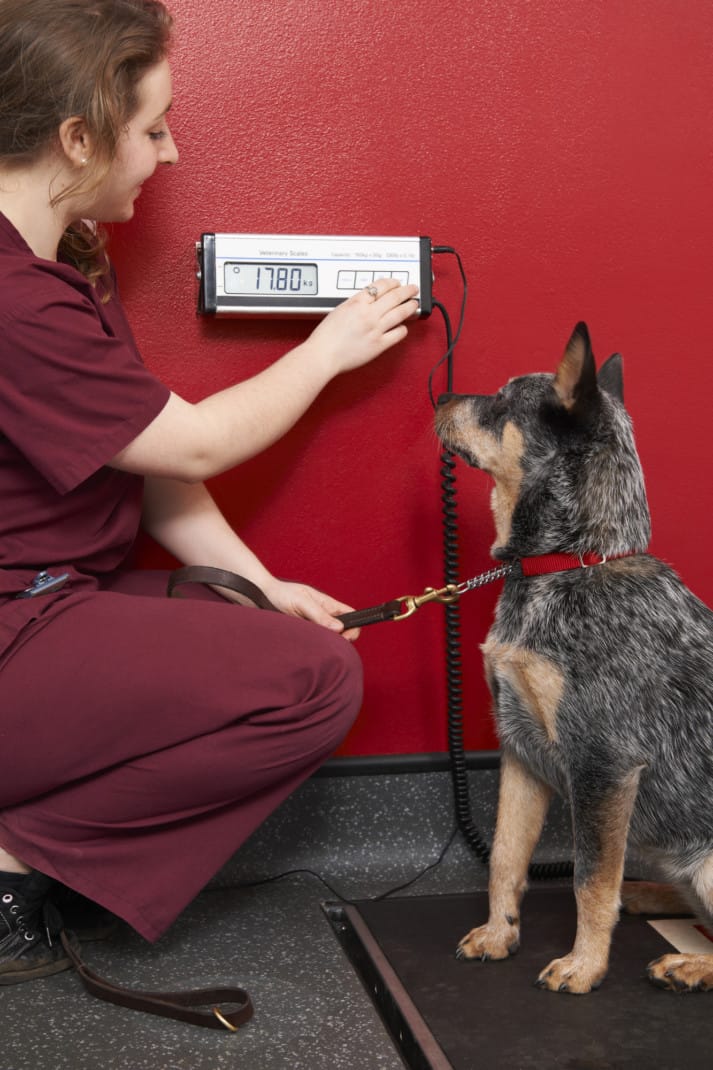
Full-service Veterinary Clinics
Some veterinarians provide routine care (wellness exams, vaccinations, minor surgeries, etc.) during regular business hours and have on-call veterinarians who see patients in emergencies after hours.
A full-service clinic can be a good choice because their vets will also provide routine follow-up care to your pet during their recovery.
24-hour Emergency Vet Clinics
These round-the-clock veterinary clinics provide routine health care as well as emergency services. Once only available at veterinarian teaching hospitals, 24-hour emergency veterinary clinics are now available in every part of the country. In some places, they even have ambulance services to pick up injured or ill pets.
If you’re near your regular vet, you’ll likely want them to perform any follow-up care your pet might need. But when you’re traveling, it’s better if your pet sees the same vet until they’re fully recovered. When you call to discuss bringing your pet in, ask whether the emergency vets at the clinic will also provide follow-up care.
After-hours Veterinary Hospitals
Some emergency vets don’t provide any routine health care. These facilities often have specialized equipment and only staff emergency vets who treat the most severely injured and ill pets in consultation with their regular veterinarian. The pets are then referred back to their regular veterinarian for follow-up care.
Generally these hospitals open when regular veterinarians close for the day, and are often available 24-hours on weekends and holidays.
In our case, Honey injured her paw early on a weekend morning, so I searched for veterinarians on GoPetFriendly.com and found an office near the marina where Honey and I had been staying. Thanks to a pet friendly cab driver, I didn’t have to carry Honey the three miles to the vet!

What Emergency Vets Want You To Know
Emergency veterinarians operate a little differently than regular veterinarians. Knowing what to expect — and what will be expected of you — will make an already tense situation a little easier.
Call First
Always call the emergency vets before you go. Some clinics do not take walk-ins, and driving there only to be sent elsewhere could waste valuable time. Also, calling gives the staff time to prepare. And, if time is of the essence, they can walk you through how to stop bleeding or induce vomiting in your pet.
Some vet offices even have special equipment to help move a large, injured dog from your car into their office without hurting them more. Calling first means they’ll have it ready as soon as you drive up.
READ MORE ⇒ Make A DIY Pet First Aid Kit For Your Car
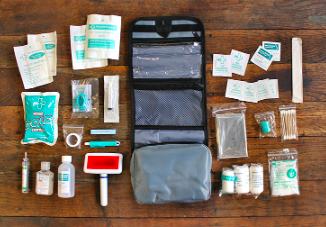
Sickest Pets See The Doctor First
Honey’s injury was simply a broken nail resulting from an earlier injury to her nail bed. Nail injuries bleed a lot, but I’ve never known a dog to die from one. So, while Honey was in some pain, her condition was not serious.
As a result, Honey and I waited while the busy staff focused on the sickest pups first. Like in a human trauma unit, it’s not first-come-first-served. Emergency vets treat those who need immediate attention first.
It can be hard to wait a long time for a veterinarian to see your pet. But be grateful that your pet is stable enough that she can wait for the doctor.
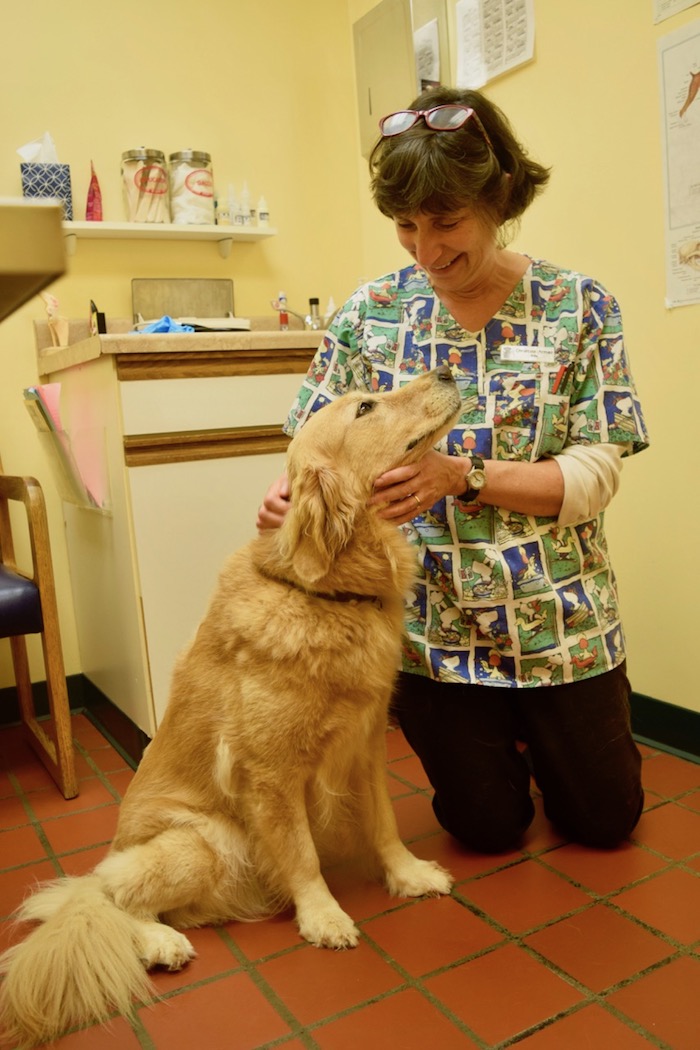
Expect Higher Costs
Emergency veterinary care is not cheap. Due to the specialized services they provide, the fees you’ll pay to have your pet evaluated and treated by emergency vets are higher than they’d be at your regular veterinarian.
To avoid any surprises, a member of the staff will usually talk to you immediately about the estimated costs. When your only concern is the well-being of your loved pet, it can feel hard to talk about money. Keep in mind that emergency vets care deeply about animals and they want to help you and your pet. But they also need to make sure they can pay their staff and the rent.
So, be prepared for a discussion about how the bill will be settled while your pet is being whisked in for evaluation. You’ll likely need to sign paperwork stating that you agree to pay for your pet’s care, and they might require a deposit before beginning treatment. Securing pet insurance before facing an emergency can help relieve the financial pressure.
READ MORE ⇒ Best Pet Insurance For Traveling Pets

Some Veterinarians Prefer to Treat Your Pet Without You Near
At your regular vet, you usually go with your pet to the treatment room. But in most emergency clinics, pets are taken into the back while their owners stay in the waiting room. Sometimes several pets are receiving care at the same time, and this keeps the treatment room from becoming too crowded.
But will the vet allow you to be with your pet when the crisis has passed? If you want to stay near your pet, try to see the situation from their point of view and you’ll be more likely to convince them that your presence will be helpful.
When the veterinarian saw how far back Honey’s nail had broken, she wanted to take her into the back to cut it the rest of the way and bandage her paw. I replied that I preferred to stay with her, and the doctor warned me that cutting the nail would hurt her.
I reassured the doctor that I knew Honey would yelp and understood she would need the technician to restrain Honey. But I also said Honey would feel more relaxed with me at her side. The vet agreed, so I stroked Honey’s ears and spoke gently to her while the vet took care of the nail.
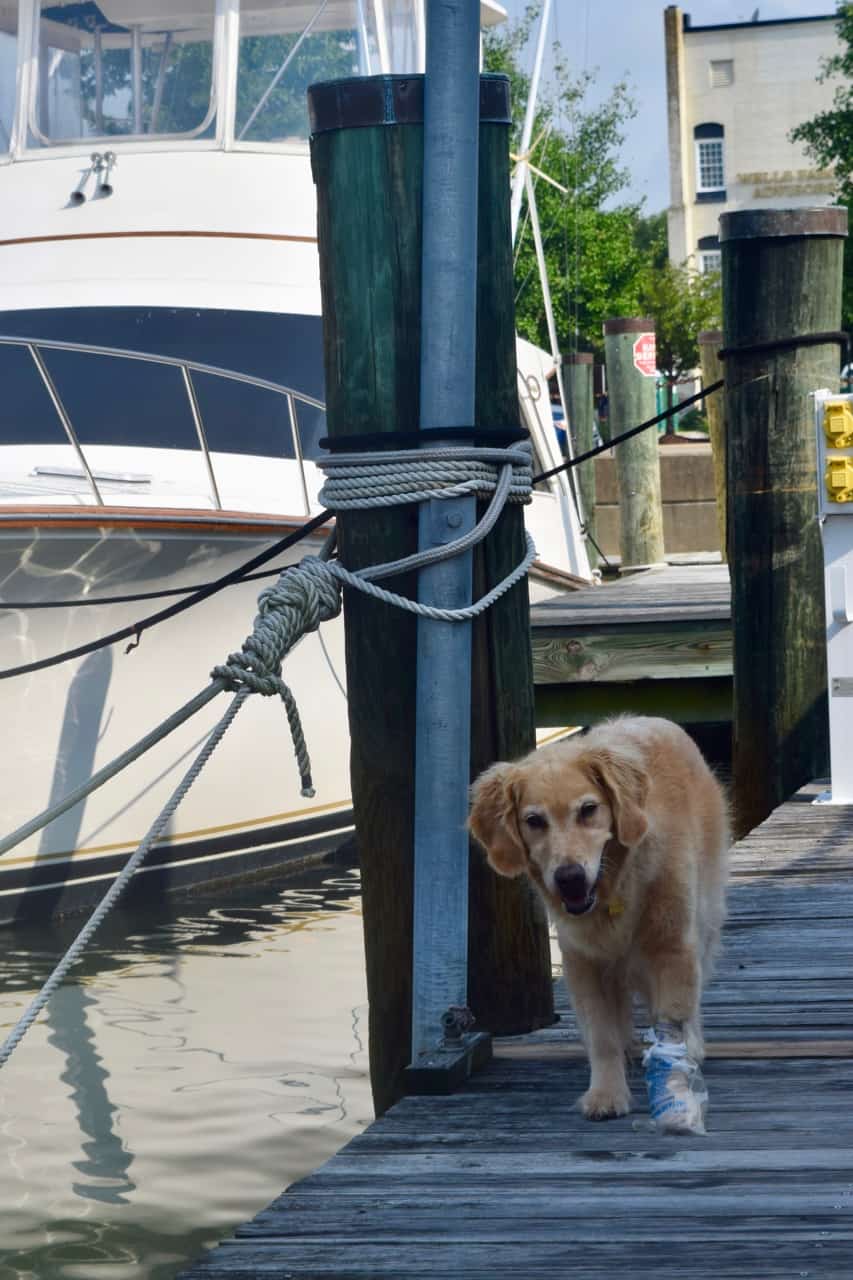
What You Can Do To Be Prepared
Any trip to the vet can be stressful, but the stress of an emergency situation is even higher. Preparing in advance will allow you to focus all your attention on your pet when they need you most.
Locate Emergency Hospitals
When you’re traveling, it’s important to know where the emergency veterinary hospitals are located. So, when you’re planning your trip, take a minute to research the emergency vets near your hotel or campground, and note their location and hours. Put this information in your pet’s travel bag, so it’s handy if you need it.
Medical Records
Unlike your regular vet, an emergency veterinarian won’t know your pet’s medical history or have access to her records. If your pet is healthy, it might be sufficient to create a note on your phone with the dates of her vaccinations and any medications and dosages.
For dogs with more chronic conditions, find out if your regular veterinarian allows you to access your pet’s records electronically. If so, be sure to set up an account with a username and password prior to facing an emergency. You can then provide access to that account to the emergency vet.
If you can’t access your pet’s records electronically, scan your pet’s medical file to a USB drive and keeping it in her travel bag. It’s easy to pack, and will provide the emergency vet with all the information they’ll need to treat your pet.
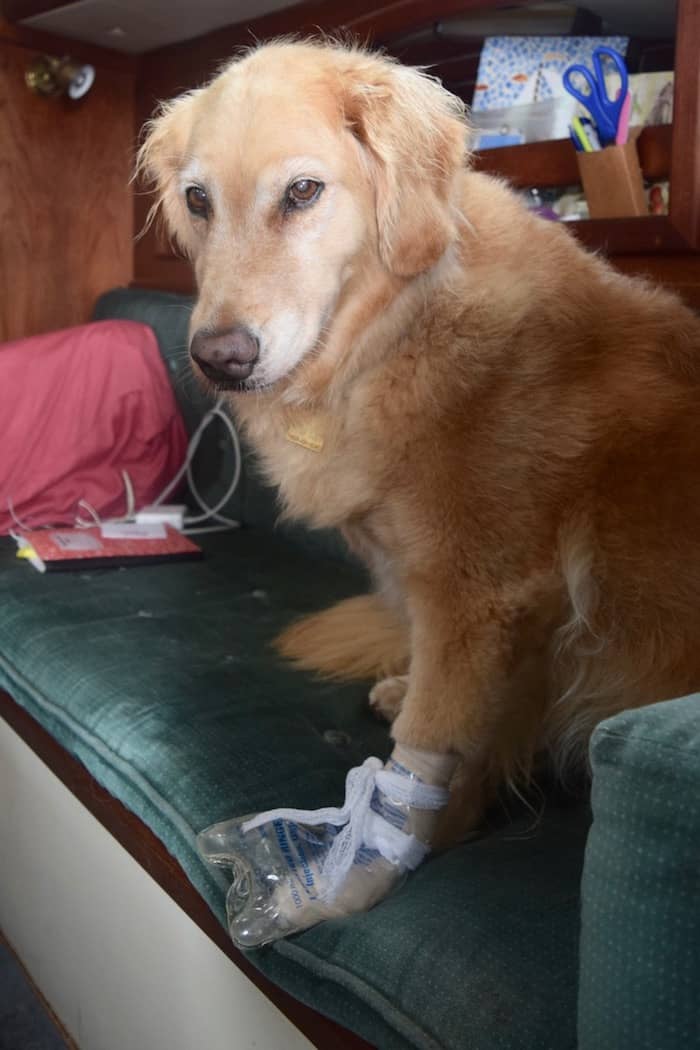
First Aid Kit
Keep a well-stocked pet first aid kit handy. When you call the emergency vet prior to your arrival, they might ask to you perform some first aid to help stabilize your pet. You’ll want to have all the items you’ll need at your fingertips.
READ MORE ⇒ Make A Pet First Aid Kit

Provide Your Vet’s Contact Information
Whenever your pet is treated by emergency vets, ask them to follow up with your regular vet. They should share any reports and instructions for follow-up care.
Acclimate Your Dog To Wearing A Muzzle
Some dogs, when they’re in pain, in an unfamiliar setting, and surrounded by strangers, can react and “defend” themselves. If it’s necessary to apply a muzzle for the safety of the staff, it will be less stressful for your pet if you’ve train him to wearing it in advance.

One of my greatest fears was that Honey would get injured or sick while we’re anchored away from shore or underway. Living on a boat and not owning a car, getting routine medical care was challenging enough without the stress of an actual emergency.
So, I was relieved to have this minor emergency behind us. It taught me what to do in a serious emergency to get Honey the best care.

If you’re planning a trip with your pet, think about emergencies as well as fun. When you’re reserving a pet friendly hotel room or campsite, look for local veterinarians. Save their number on your phone, and have a plan for what you’d do if your pet got sick or inured.
Hopefully you’ll never need an emergency vet while traveling. But if you do, planning ahead will make an emergency less stressful!
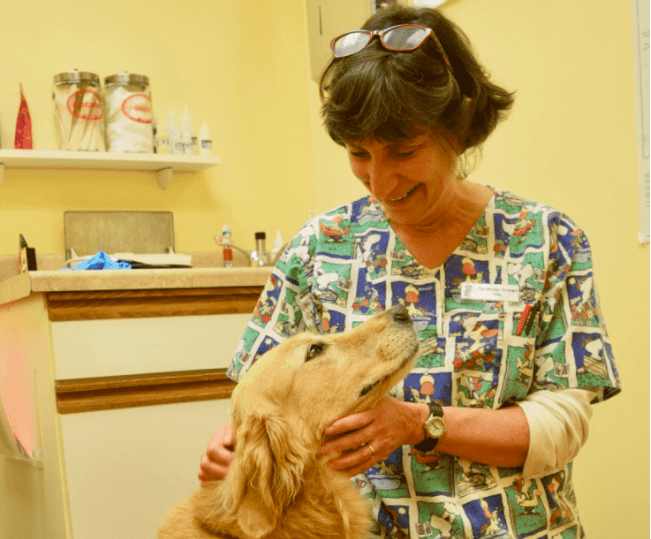
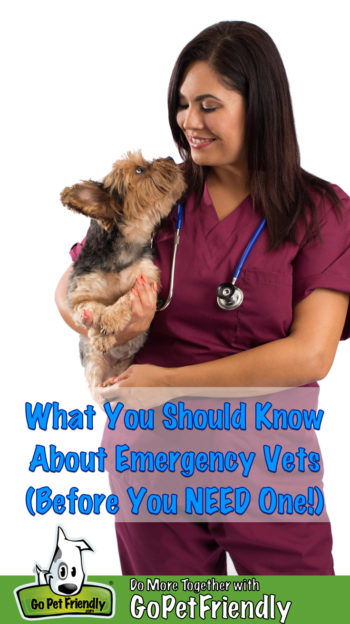




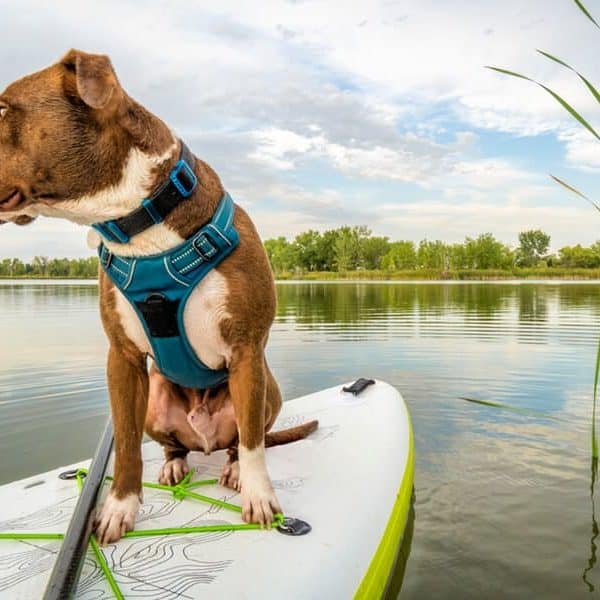





We also have two clinics that are Prompt Care/Urgent Care clinics. They are Monday – Friday 730a – 530p. The Emergency Clinic here opens at 6p until 7a, then 24 hours over the weekend. It’s hard to get into your regular vets for same day issues here, so the Prompt Vet Clinics have really stepped in to feel a need.
That’s a fantastic idea!! I love it!